Evisu, a brand that emerged from the heart of Osaka, Japan in 1991, has not only redefined the landscape of denim but has also solidified its status as a beacon of luxury streetwear. Founded by Hidehiko Yamane, Evisu began as an ambitious project with a deeply traditional ethos, producing only about 14 pairs of jeans each day, each adorned with the hand-painted ‘kamome’ or seagull logo—a nod to Ebisu, the Japanese god of fortune and fishermen. This meticulous attention to detail and dedication to craftsmanship catapulted Evisu from a niche denim label to a cult symbol within the streetwear realm.
The 1990s saw Evisu expanding beyond its denim roots, introducing tailored garments, along with lines dedicated to fishing and golf, reflecting Yamane’s vision of a comprehensive lifestyle brand. The brand’s ethos of quality over quantity continued to attract a discerning clientele. By the late ’90s, Evisu further diversified its offerings with the launch of Evisu Donna, a line dedicated to women’s fashion, marking the completion of its transformation into a full-fledged fashion house. At its core, Evisu remained committed to its artisanal origins, a philosophy that continued to endear it to those in the know. By the end of the decade, Evisu had not just fans but devotees, who saw wearing the brand as a badge of honor—a testament to their insider knowledge and fashion acumen.
The turn of the millennium heralded a new chapter for Evisu. In 2009, amidst a relaunch, Scott Morrison of Paper Denim & Cloth and Earnest Sewn fame joined as CEO and creative director, injecting a new vitality into the brand. Under Morrison’s stewardship, Evisu expanded its global footprint, establishing 65 shops across Japan and extending its influence worldwide. Evisu’s iconic status was frequently celebrated in pop culture, finding mentions in tracks by Jay-Z, Lil Wayne, and others, embedding it further into the urban fabric. Despite its evolution and the shifts in the fashion industry, Evisu has remained true to its roots, with each pair of jeans still embodying the spirit of craftsmanship and the pursuit of perfection—a testament to its enduring appeal and lasting legacy in the world of luxury denim.
SS22 Evisu x Wang Yibo Skate Campaign
How to tell if Evisu is vintage from the logo
Evisu, known for its meticulously crafted denim and distinct brand identity, has continually evolved its logo to align with its luxury streetwear appeal. Since its inception in 1991 by Hidehiko Yamane, Evisu’s logos have been central to its branding, making them key identifiers for fashion enthusiasts and collectors. Initially embraced for its artisanal approach to denim, Evisu gained cult status among the fashion-savvy, especially in the streetwear community, for its bold and often flamboyant logo designs. This strong visual branding has not only differentiated Evisu from other denim brands but has also cemented its status as a symbol of premium craftsmanship and style.
Over the years, the Evisu logo has seen several iterations, each reflective of the brand’s growth and the shifting trends in fashion. These changes in the logo are more than just aesthetic updates; they represent chapters in the brand’s history, with each version carrying its own story and era-specific characteristics. Understanding the nuances of these logos can significantly aid in identifying the vintage and authenticity of Evisu garments, which are often highly sought after in the resale market for their rarity and unique designs.
1991 to now Evisu logo
- Introduced in 1991, this logo features the classic ‘seagull’ or ‘kamome’ design on the back pockets of the denim, which is a reference to the Japanese god of prosperity.
- The seagull design is hand-painted, making each piece unique and highly valued among collectors for its artisanal quality.
- This logo is crucial for identifying the brand’s earliest and most iconic pieces, often featured prominently on the denim’s back pockets.
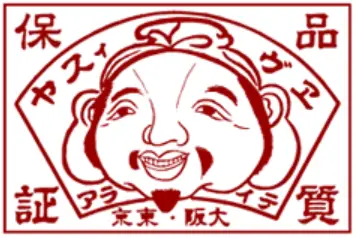
1991 to now Evisu logo
2000s to now Evisu logo
- In the early 2000s, Evisu expanded its logo design to include more modern and sometimes minimalist styles, reflecting its growing influence in the global fashion market.
- This era saw the introduction of logos that maintained the original ‘Evisu Genes’ text but stylized in new fonts and arrangements, appealing to a broader, more international audience.
- The variation in logo styles during this period makes it a rich era for collectors, offering a blend of both traditional and contemporary design elements.
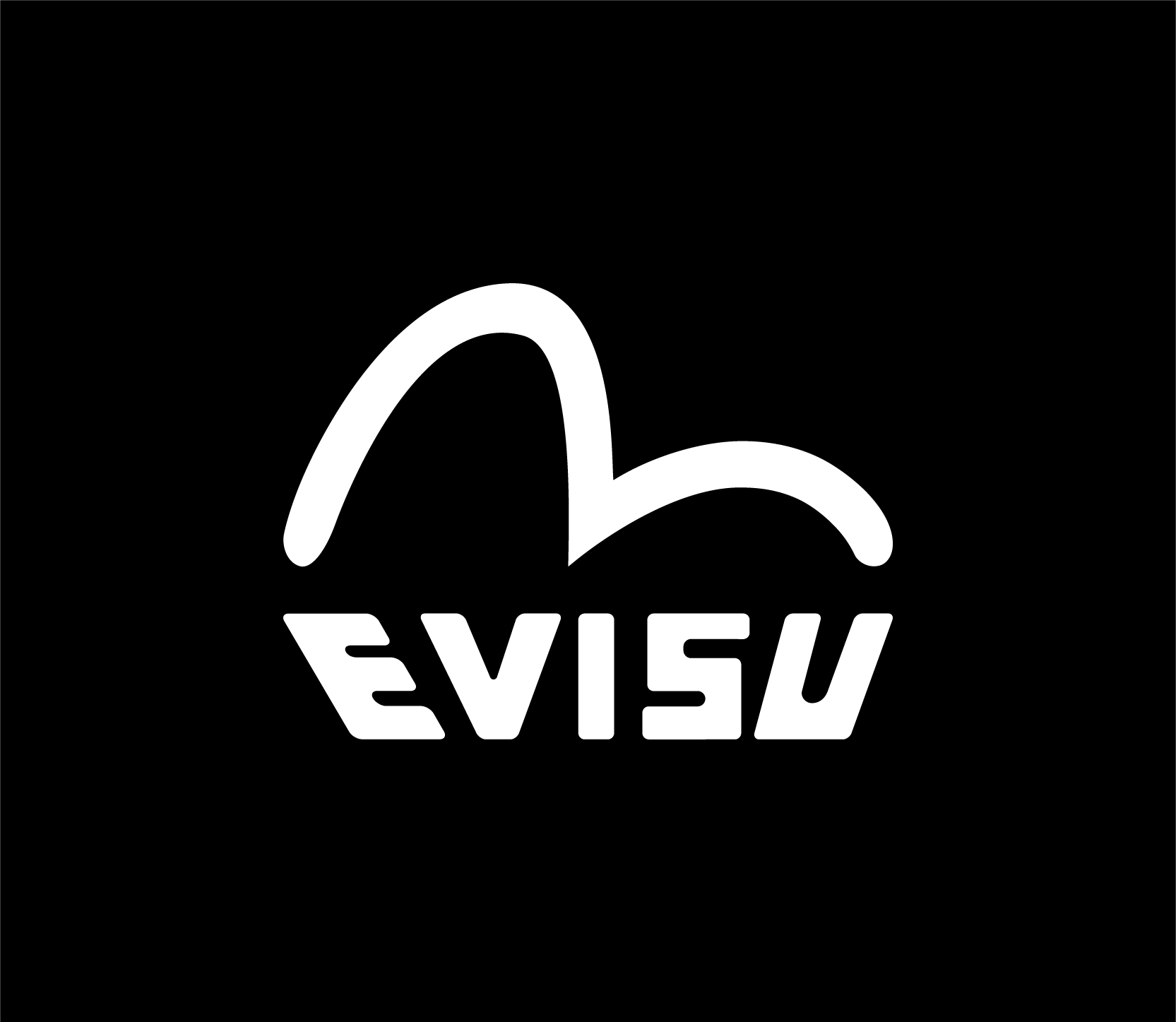
2000s to now Evisu logo
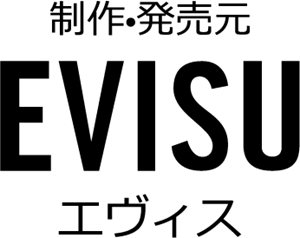
2000s to now Evisu logo
How to tell if Evisu is vintage from the tags
Evisu, a brand synonymous with premium Japanese denim, has evolved significantly since its inception. Known for its meticulous craftsmanship and distinctive branding, Evisu jeans have become a coveted item for collectors and fashion enthusiasts alike. Over the decades, the brand’s tags have undergone various changes, reflecting shifts in design trends, manufacturing processes, and branding strategies. Recognizing the era of Evisu jeans through their tags not only helps authenticate the product but also appreciates its historical context and value.
From the early hand-painted seagull logos to the more recent sophisticated tag designs, each era of Evisu jeans carries unique characteristics. By examining the nuances in the tags—such as the material, typography, and logos—collectors can pinpoint the production period. This guide will walk you through the distinctive features of Evisu tags from the 1990s to the 2010s, providing a visual and descriptive reference to identify and date vintage Evisu jeans accurately.
Struggling with vintage tags or labels? Submit a picture on our vintage tag identification page, and we’ll help you identify them!
1990s vintage Evisu tags
- Feature the iconic hand-painted “seagull” logo prominently.
- Often made of robust materials to match the durable denim.
- Typically include detailed care instructions in both Japanese and English.
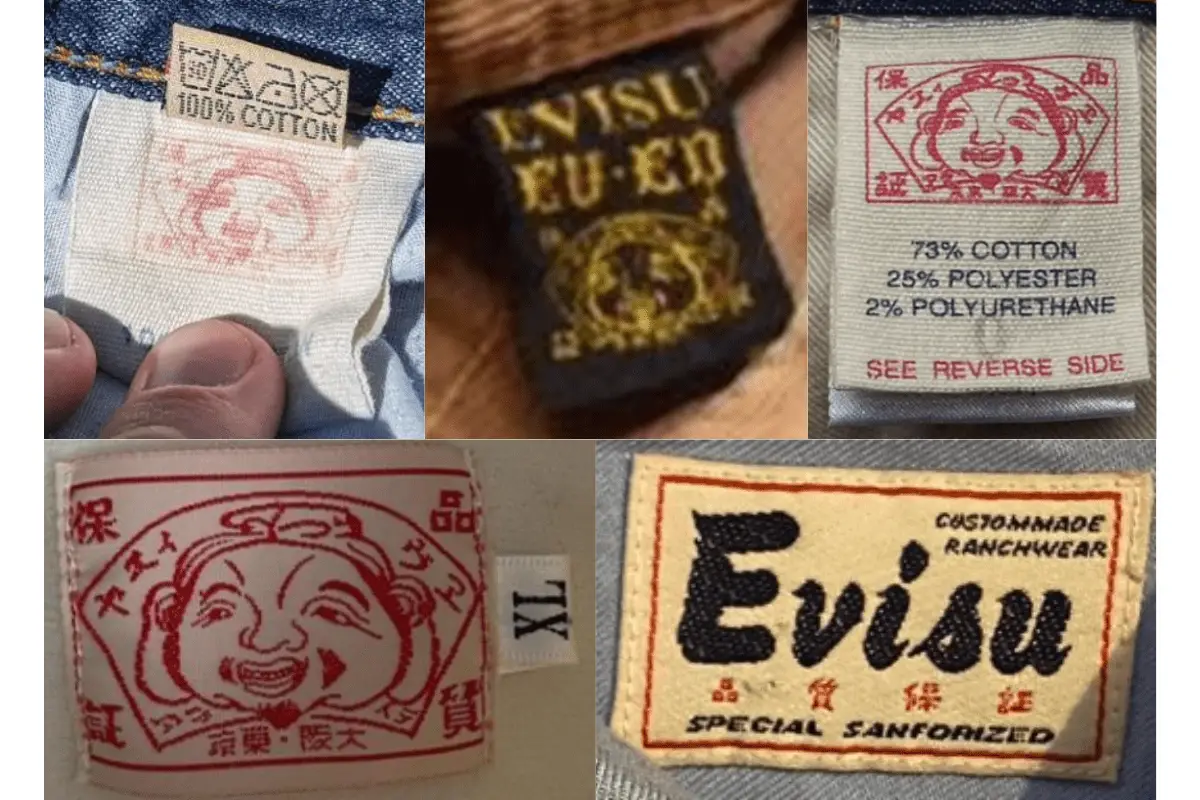
1990s Evisu tags
2000s vintage Evisu tags
- Introduction of more refined, machine-embroidered logos.
- Use of darker, more subdued colors in the tags to reflect premium denim styles.
- Inclusion of additional branding elements like “Evisu Genes” to denote special lines or collaborations.
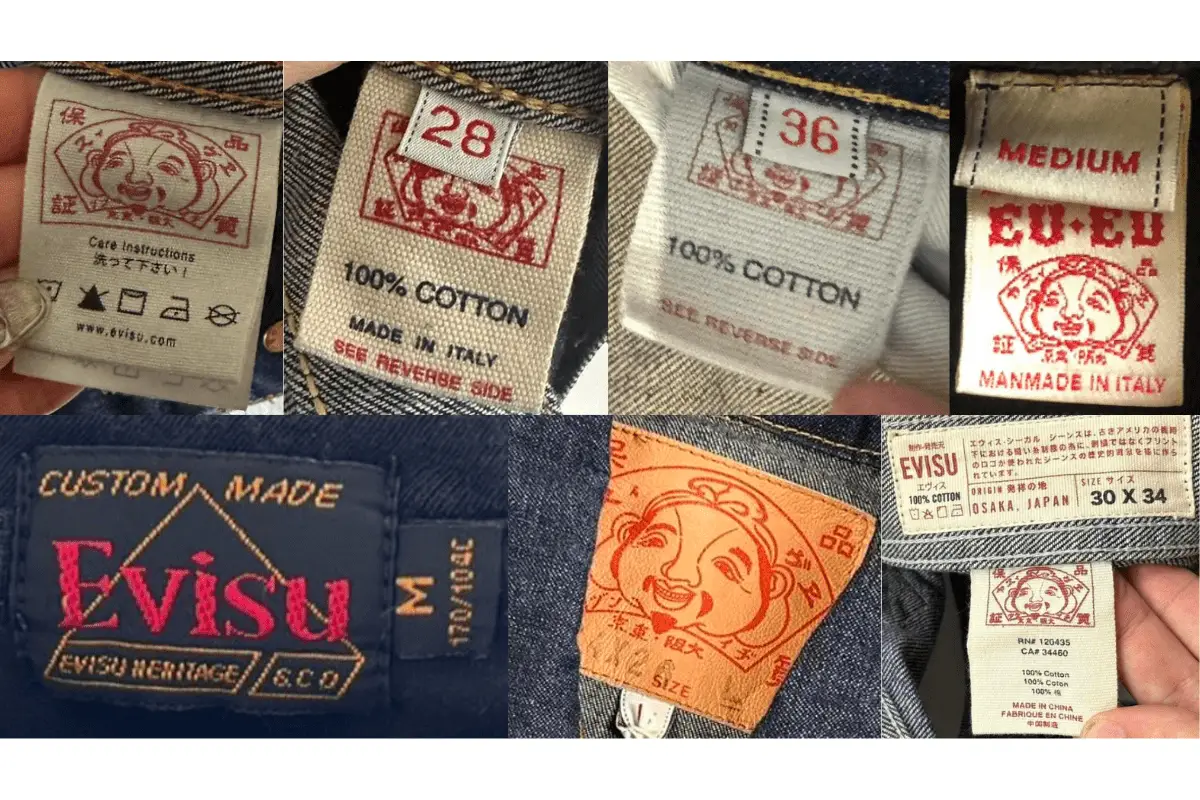
2000s Evisu tags
2010s vintage Evisu tags
- Modern and sleek designs with bold new fonts and streamlined graphics.
- Expanded use of color and experimentation with tag shapes and materials.
- Tags often reflect global manufacturing shifts, with more diverse production locations.
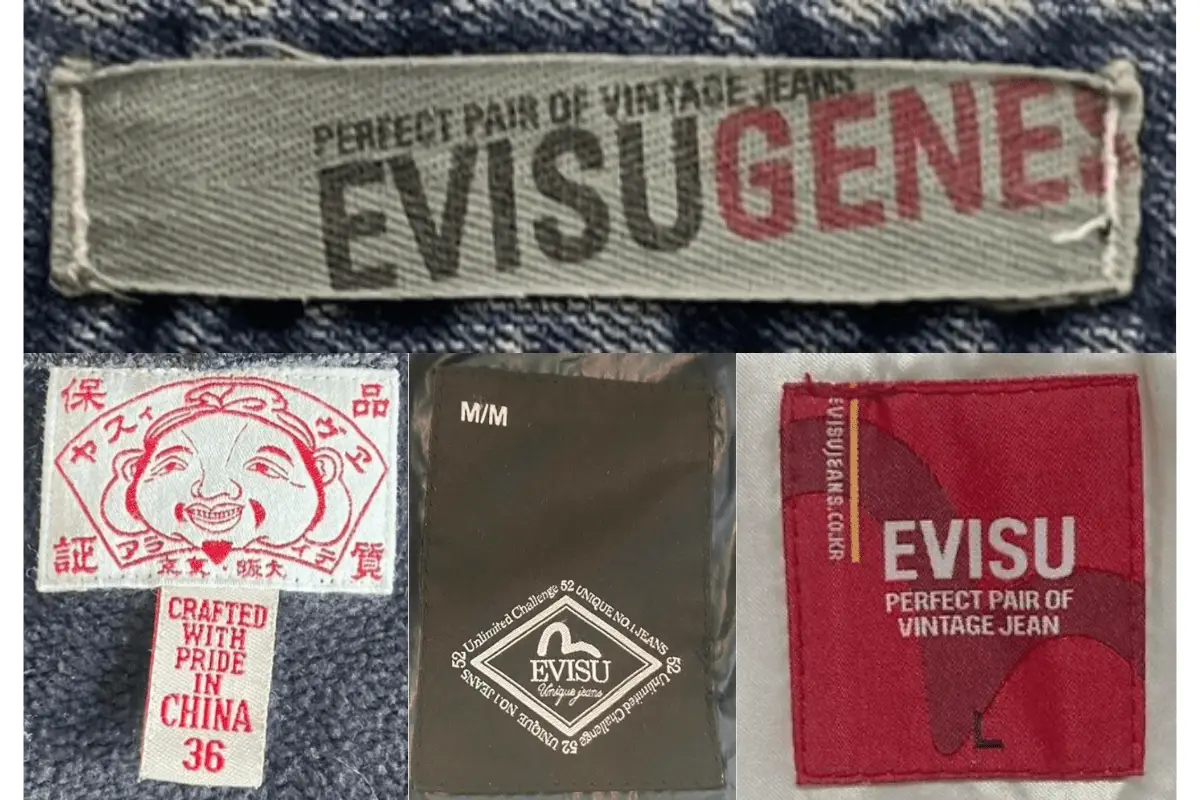
2010s Evisu tags
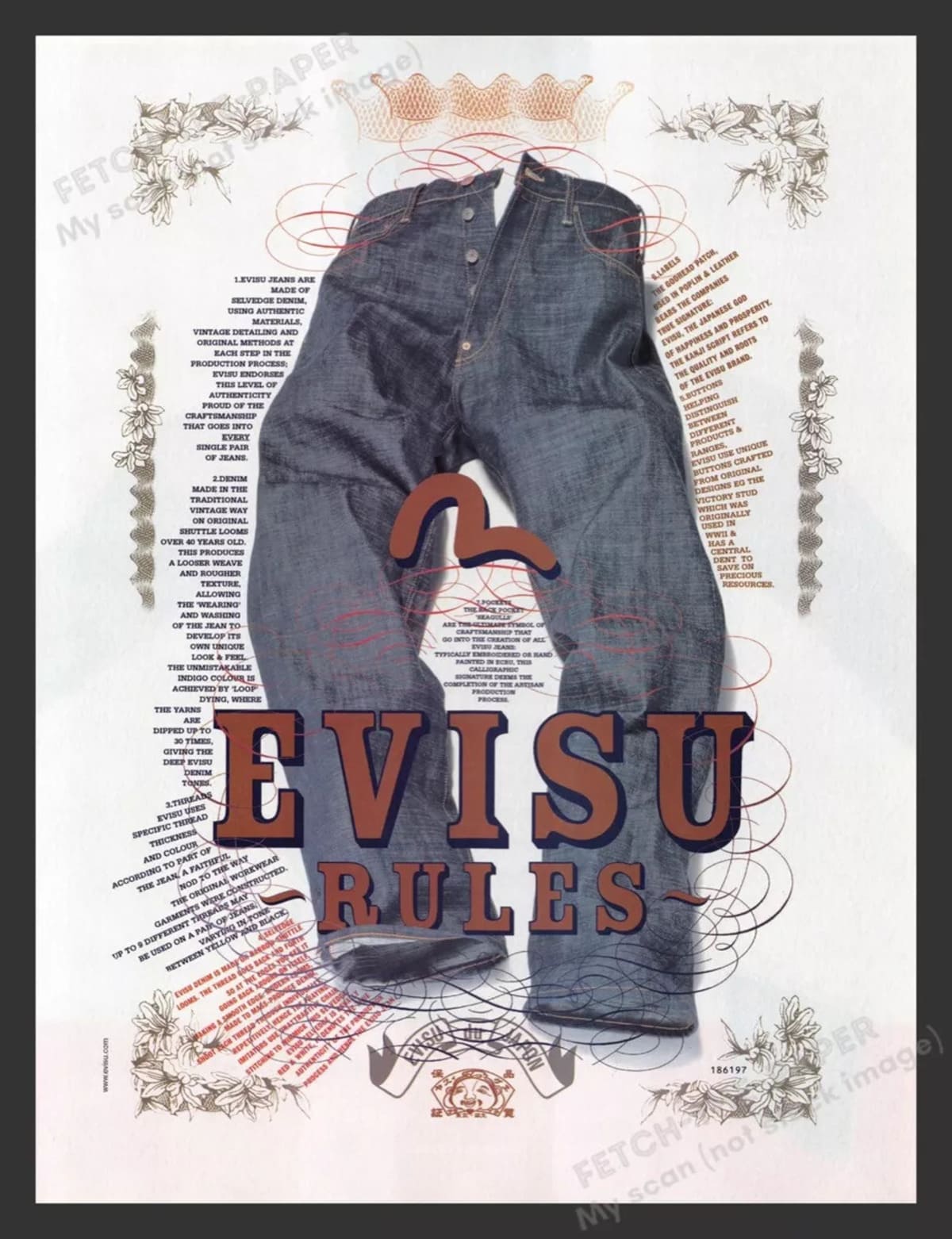



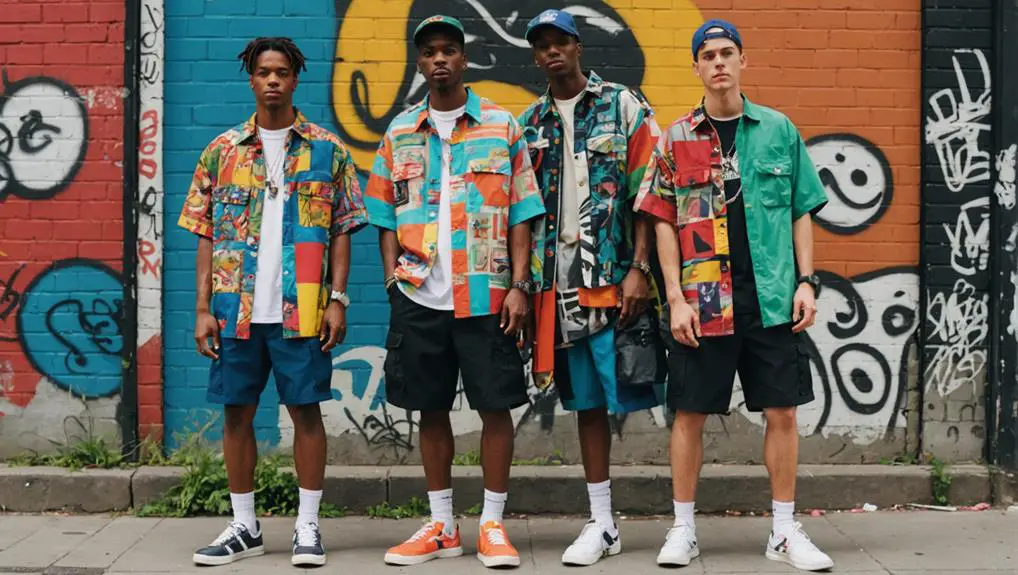
Heyy!! I’m just curious what my evisu’s are worth. I thrifted them and see the lot # is 0001, so I was wondering if they’re one of the first pairs sold?